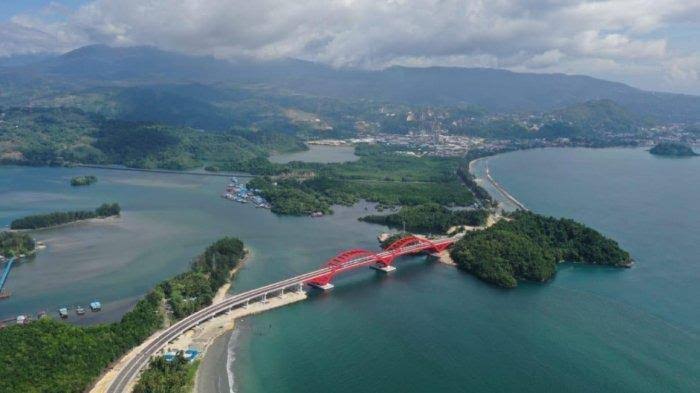Papua’s Development Involves Women’s Representation in Political Space
By : Clara Anastasya Wompere )*
Papua’s development continues to occur, the Government, both at the central and regional levels, is also involving the representation of women in the political space in the context of the succession of development of the region nicknamed Bumi Cenderawasih.
Involvement in women’s representation in the political space is very important, especially to realize gender equality in terms of development policy in Papua.
So, in the future, the region nicknamed Little Heaven that Fell to Earth will become a developed region like other regions, one of which can be seen from the equality of degrees between men and women in various fields.
The Papua Provincial Government (Pemprov) continues to strive to accelerate development in its region in order to realize improvements in the quality of life for women and children in the area through collaboration with related agencies such as the Working Group (Pokja) of the Papuan People’s Assembly (MRP).
The Acting Governor of Papua, Ridwan Rudalamun, said that the quality of life for women and children in Bumi Cenderawasih continues to gradually change from time to time, namely increasing and improving.
In this way, the local Regional Government (Pemda) can continue to provide a strategic forum for exchanging information between the Ministry of Women’s Empowerment and Child Protection (PPPA) and the Papuan People’s Council.
If this forum for exchanging strategic information is realized, it is not impossible to accelerate the improvement of the quality of life of women and children in Papua.
The Papua Provincial Government continues to strive to maximally encourage accelerated improvement in the quality of life for women and children. Another important thing that the government continues to strive for is the appointment of members of the Regency or City People’s Representative Council (DPRK).
As in the General Election Law (UU Pemilu) regarding the 30 percent quota for women and Minister of Home Affairs Regulation (Permendagri) Number 2 of 2024, the Papua Provincial Government emphasizes to the election organizing institutions and all components involved to continue to provide space and access for women.
Not without reason, because women’s representation will provide supervision and monitoring and can ensure women’s involvement at every stage of the democratic party for the sake of regional development.
Meanwhile, the Minister of Women’s Empowerment and Child Protection (PPPA), Bintang Puspayoga, said that his party was ready to work with the Papuan People’s Council (MRP) to continue fighting for women’s and children’s issues in Bumi Cenderawasih.
The government continues to ensure that the MRP has extraordinary powers as in the Special Autonomy Law (UU Special Autonomy) so it must continue to be implemented to fight for issues, women, customs and religion.
In a meeting leading up to the peak of the commemoration of National Children’s Day (HAN) 2024, the government continued to follow up to oversee several issues and the authority of the MRP in relation to efforts to encourage the development of women’s empowerment and child protection.
In accordance with the duties and functions and authority of the MRP based on the Special Autonomy Law, the Papuan People’s Assembly has the potential to function greatly in overseeing women’s and children’s issues.
High appreciation was expressed for the formation of the Women’s Working Group (Pokja) which is part of the MRP so that it can clearly understand the various issues that Papuan women and children are currently experiencing.
Starting from the existence of the Women’s Working Group, it then became the starting point for the government to resolve various issues related to women and children in Bumi Cenderawasih.
On the other hand, the Acting Governor of West Papua, Ali Baham Temongmere, gave a special message to mothers and women. He emphasized the importance of women’s real participation and contribution to building Bumi Cenderawasih from the smallest environment, namely family and community first.
Because it is true that an area will continue to experience significant progress and development, but this must take place from the smallest environment such as the family and community itself.
If the family environment has experienced good and quality education, especially from a woman who becomes a mother, then the children there will grow and develop into quality young human resources (HR) for the progress of Papua.
Therefore, all women must continue to experience empowerment, the first step in empowering efforts is that there must be a change in mindset or mindset first.
If we talk about empowering women, it’s not just about providing access, but also about changing the way they think and act. There needs to be a continuous transformation of values so that women can appear as agents of change.
Currently, the government continues to strive to accelerate development in Papua, which is not only building various kinds of physical infrastructure, but also empowering society by involving the representation of women in the political space so as to realize gender equality.
)* The author is a Papuan student living in Yogyakarta
